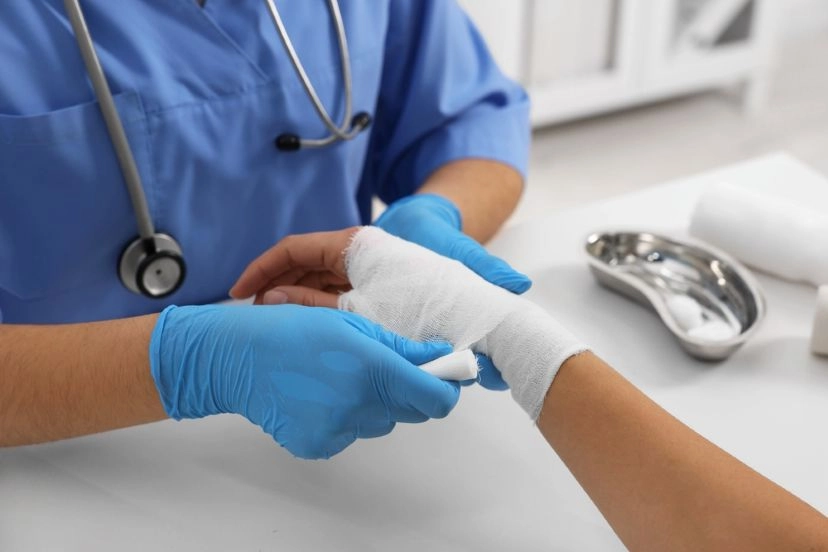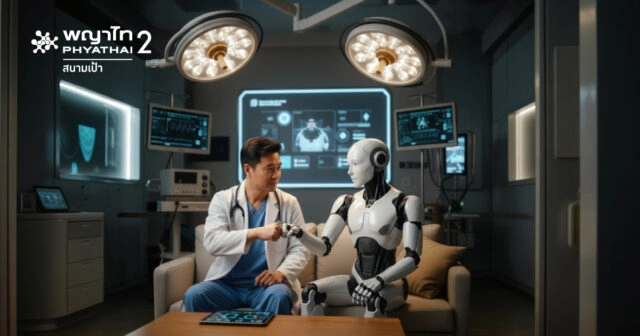Detect breast cancer accurately with the innovation of Breast Biopsy Under Stereotactic

The “breast” is an important organ for women, requiring consistent care and regular health checks. According to the Health Data Center of Thailand’s Ministry of Public Health, breast cancer is the most common cancer among Thai women, particularly in those aged 60 and above, followed by women aged 50–59 and 40–49. Ignoring this can lead to severe consequences.
Innovations in detection and early diagnosis
Warunothai Worawalai, a radiology technologist at Phyathai 2 Hospital, mentioned that women are increasingly prioritizing their health, particularly concerning breast cancer, which is now being diagnosed at younger ages. Regular monthly self-breast examinations and annual breast cancer screenings with digital mammography are recommended. Since the metastasis stage typically occurs within 1-2 years, modern technology now allows for comprehensive and highly accurate detection. Early identification of abnormalities enables prompt treatment, significantly increasing the chances of a full recovery.
When should women begin breast examinations?
Women are generally advised to start screenings at age 40, with annual check-ups. Those with a family history of breast cancer should begin at age 35 after consulting a specialist for risk assessment.
Is breast cancer exclusive to women?
“No, men can also develop breast cancer, though it’s rarer and easier to detect due to less dense breast tissue,” Warunothai explained. Men might notice lumps more easily than women, whose denser tissue can make detection harder. Hormonal differences account for women’s higher susceptibility to breast cancer.
What age group is at higher risk?
The risk of breast cancer significantly increases in women aged 50 and older due to cellular changes and other bodily factors.
Frequency of breast cancer screenings
Women aged 40 and older should undergo annual screenings. If abnormalities are found, follow-ups every six months, using ultrasound or mammograms, may be necessary based on medical advice.
Self-examination habits
Monthly self-examinations involve observing external changes such as size, shape, or skin abnormalities, and gently palpating the breast in circular motions to detect lumps. If anything unusual is found, medical consultation is advised.
What if there’s a family history of breast cancer?
If a family member had breast cancer under the age of 30, early screening is strongly recommended. Genetic testing and advanced imaging like MRI may be necessary to ensure accurate diagnosis and effective prevention.
Can individuals with breast implants undergo screening?
Yes, implants do not interfere with ultrasound, mammograms, or other examinations. Modern implants are durable and unaffected by the pressure of imaging equipment.
Advanced technologies for precise detection
Innovations like 3D Digital Breast Tomosynthesis provide clearer images compared to traditional 2D methods. This technology captures cross-sectional images of dense breast tissue, improving accuracy. If abnormalities, such as calcifications, are detected, a “Breast Biopsy under Stereotactic” can be performed. This technique uses a small needle to extract tissue for testing, taking only 5 minutes and offering over 90% accuracy. It is minimally invasive test, leaving a small wound of less than 2 millimeters, and requires no stitching or recovery time.
Does surgery affect breast aesthetics?
Modern surgical techniques aim to preserve breast shape. For minor tumors, breast-conserving surgery is an option. In cases requiring a mastectomy, fat transfer or silicone implants can restore the breast's appearance.
A call for early detection. “I urge everyone aged 40 and above to undergo breast cancer screening annually or visit a specialist immediately if abnormalities are noticed,” Warunothai advised. Early-stage detection significantly improves the chances of a cure, enhancing quality of life and reducing mortality risks.


